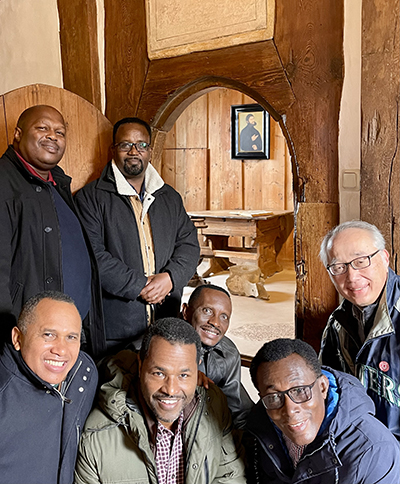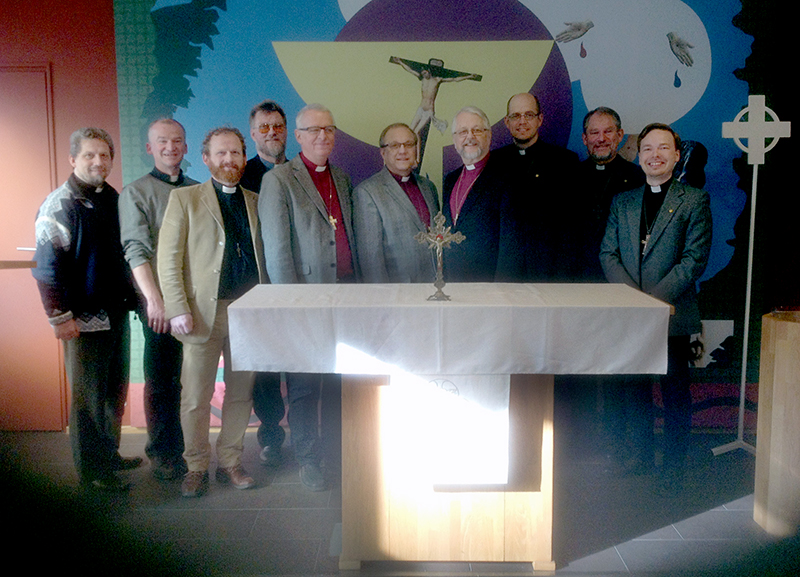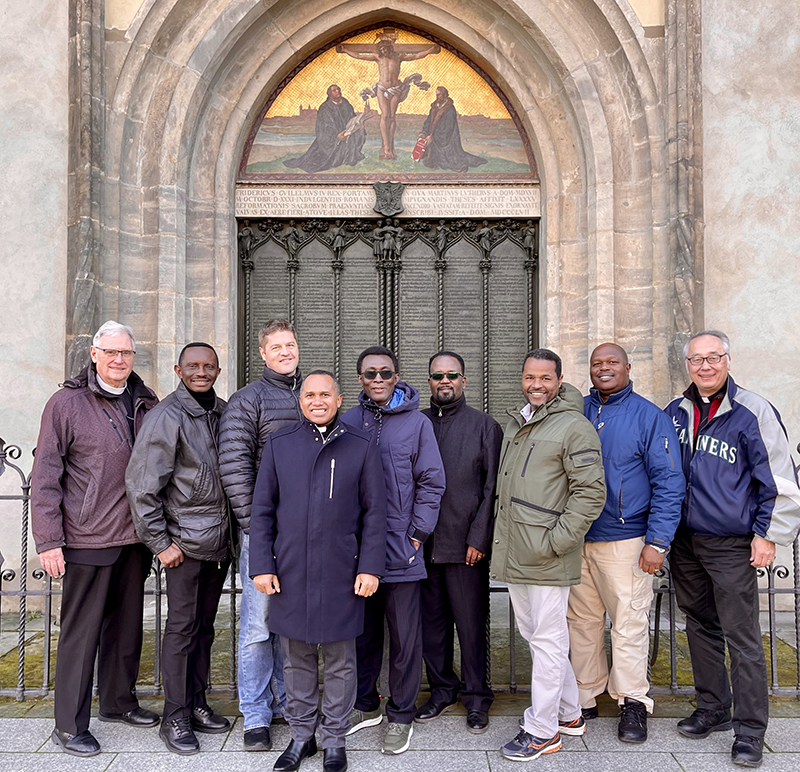
GERMANY – After successfully completed the first half of the two-year Lutheran Leadership Development Program (LLDP) with six classes in three sessions in 2019, the COVID-19 pandemic necessitated postponement of the second half for two years. The program was finally able to resume this spring, with classes taking place February 21 through March 4, 2022 at the International Lutheran Center (Old Latin School) in Wittenberg, Germany.
The International Lutheran Council’s (ILC) General Secretary, Rev. Dr. Timothy Quill, taught a course on “Liturgy and Lutheran Hymnody” while LLDP Director, Professor Naomichi Masaki of Concordia Theological Seminary (Fort Wayne, Indiana), held a class on the “Lord’s Supper.”
A total of seven Lutheran church leaders from Ghana, South Africa, Ethiopia, Tanzania, and Madagascar gathered together for the fourth sessions. Regrettably, variations in national vaccination policies prevented some other students from South Africa, Tanzania, and Ethiopia from obtaining visas necessary to attend.
Students were delighted to finally meet again in person, after having communicated primarily through emails and social media. Daily chapel together and classroom sessions remain the core of the program. Brotherly conversations were enhanced by living together for two weeks and by visiting significant historic locations within Wittenberg as well as in the surrounding regions of Wartburg, Erfurt, and Leipzig.
Worship and the Lord’s Supper
Dr. Quill, who has been part of the LLDP’s teaching faculty since its launch in 2019, led a course on liturgy and Lutheran hymnody. Worship is often a challenging part of the LLDP participants’ ecclesial leadership responsibilities at home. Dr. Quill addressed this important area by teaching the nature of worship as God’s service; the development of liturgy and ceremonies throughout church history; appropriate vestments; and the richness of Lutheran hymnody, with a guideline as to how one may evaluate hymns to be sung in the Divine Service. With numerous concrete stories and examples, Dr. Quill encouraged participants on how to exercise liturgical leadership in their own church bodies.
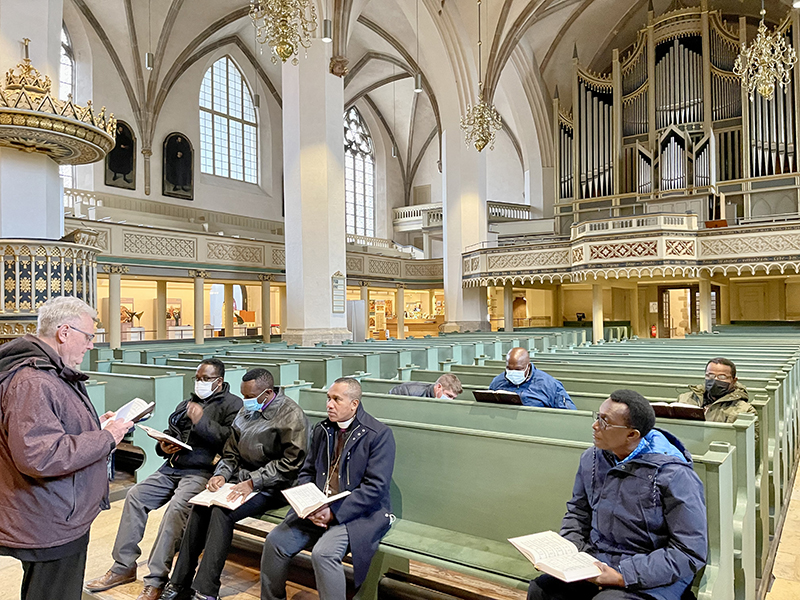
Dr. Masaki’s topic was an equally challenging one for the participants. Issues related to administration of the Lord’s Supper were identified and participants planned how to address them in their own ministry contexts. The use of bread was an issue in some churches of the participants. The question of wine was an even more disputed one. The class discussed frequency and early ages of communion, as well as the relationship between the Lord’s Supper and the Office of the Holy Ministry. Several participants brought up the subject of unfriendly pastors at communion. Others commented on legalistic practices inherited from their missionary-forebears, such as the compulsory covering of the head for women, wearing of jacket for men, and removal of shoes for all. Charismatic and neo-Pentecostal influences on the Lord’s Supper were also deliberated. The issue of open communion prompted by ecumenical relations of churches and schools in local settings was also addressed. Dr. Masaki helped these church leaders address these and other issues, discussing the major ecumenical and liturgical movements of the last century that may have negatively impacted doctrine and practice of the Lord’s Supper in their contexts. He further expounded the Lord’s Supper as instituted by our Lord in Scripture and confessed in the Book of Concord, helping students prepare themselves for leadership in this area at home.
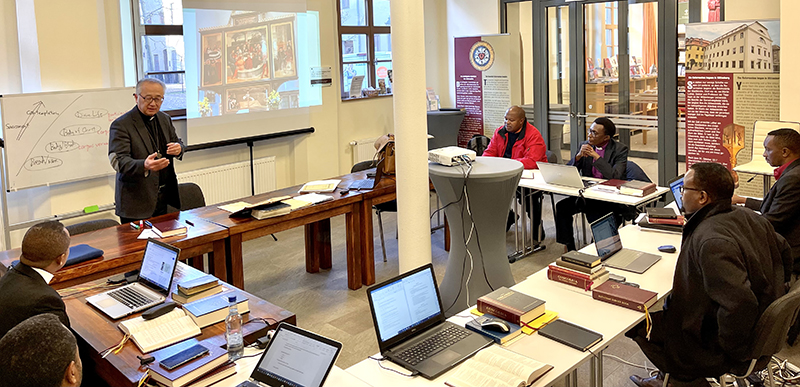
LLDP participants received the teachings of Dr. Quill and Professor Masaki with joy, gratitude, and excitement. “You explained everything in detail and made it easier to understand what confessional Lutheran means,” one participant remarked about his experience. “The courses have made us to think deeper in a number of issues when it comes to liturgy and the Lord’s Supper,” said another. “I strongly recommend that the LLDP continues, in order to preserve the truth among the participating churches and to strengthen the ILC,” commented still another student.
“It was gratifying that the Lord has made it possible for the LLDP to meet face to face again,” commented Dr. Masaki. “The time spent in person was another wonderful opportunity for our Lutheran leaders to deepen their confessional Lutheran theology, develop practical skills in the areas of worship, and cultivate their friendship as Lutheran church leaders.”
“I am deeply thankful for the supporters of the LLDP, including Concordia Publishing House, The Lutheran Church—Missouri Synod (LCMS), and Concordia Theological Seminary,” he continued. “We were delighted to have Dr. Quill with us as General Secretary. We pray that the Lord may continue to bless this important program for the sake of serving the Lutheran Churches around the world through their leaders.”
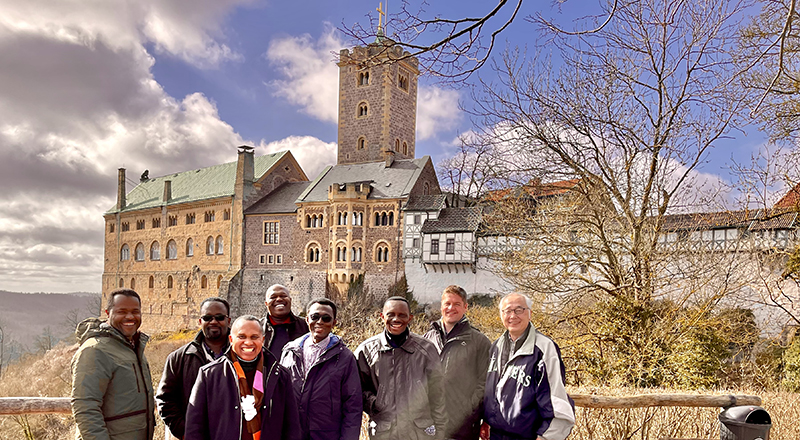
The next set of classes will take place July 25–August 5, 2022 at Concordia Theological Seminary in Fort Wayne, Indiana. The cohort will take two practical courses and church leadership: “Strategic Planning and Task Management,” taught by Rev. Dr. Jeff Skopak, pastor of Grace Lutheran in Jacksonville, Florida; and “Budgeting and Financial Accountability,” taught by Rev. Dr. Roger Paavola, President of the LCMS’ Mid-South District.
You can support the work of the Lutheran Leadership Development Program by making a donation online. You can also make a donation by cheque to:
International Lutheran Council
PO Box 10149
Fort Wayne, Indiana 46850 USA
———————

